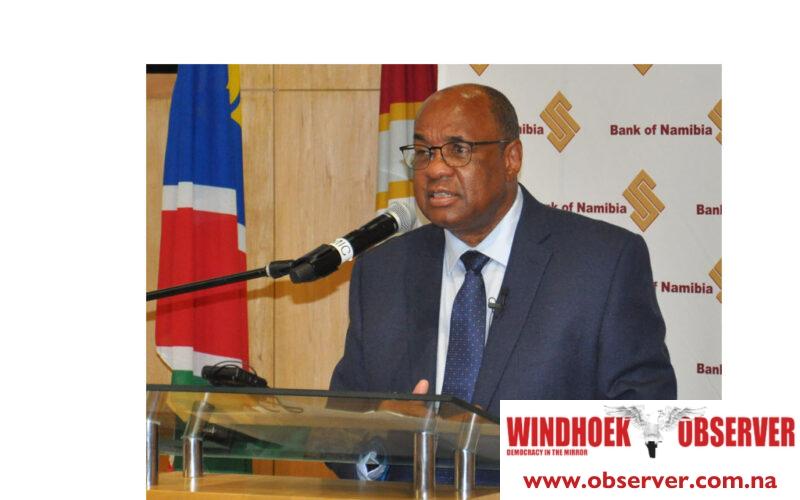Matin Endjala
Namibia’s financial system remains stable and resilient despite slowing economic growth and global challenges, according to the Financial System Stability Committee (FSSC) report released on Tuesday.
According to the report, factors like drought, low diamond prices, and weak global demand will cause Namibia’s Gross Domestic Product (GDP) growth to slow to 3.1% in 2024.
Global factors continue to primarily influence risks to the domestic economy.
The FSSC, which includes the Bank of Namibia and the Namibia Financial Institutions Supervisory Authority, met on 3 October to assess the financial system’s resilience.
Bank of Namibia Governor Johannes !Gawaxab said: “The Committee noted the risks to financial system stability and remains committed to maintaining vigilance and steering the course to address any emerging risks appropriately.”
Despite concerns, particularly around household indebtedness, the report found that Namibia’s financial system continued to operate efficiently during the first half of 2024.
The banking sector remains liquid, profitable, and well-capitalised, supported by growing balance sheets driven by net loans and advances.
Additionally, non-bank financial institutions (NBFIs) were stable, bolstered by global financial market developments and increased government spending.
The report also highlighted a significant decrease in fraud across all payment streams compared to 2023, with the Namibia Interbank Settlement System maintaining high availability during the first half of 2024.
The overall conclusion is that, despite existing risks, Namibia’s financial system remains sound, with no major disruptions to key financial services.
Climate change, cybersecurity threats, and Namibia’s standing with the Financial Action Task Force (FATF) pose potential risks to the financial system, despite the country’s progress in addressing FATF recommendations.
The International Monetary Fund (IMF) projects that global economic growth will slow slightly to 3.2% in 2024 from 3.3% in 2023, but the global economy will still be robust.




